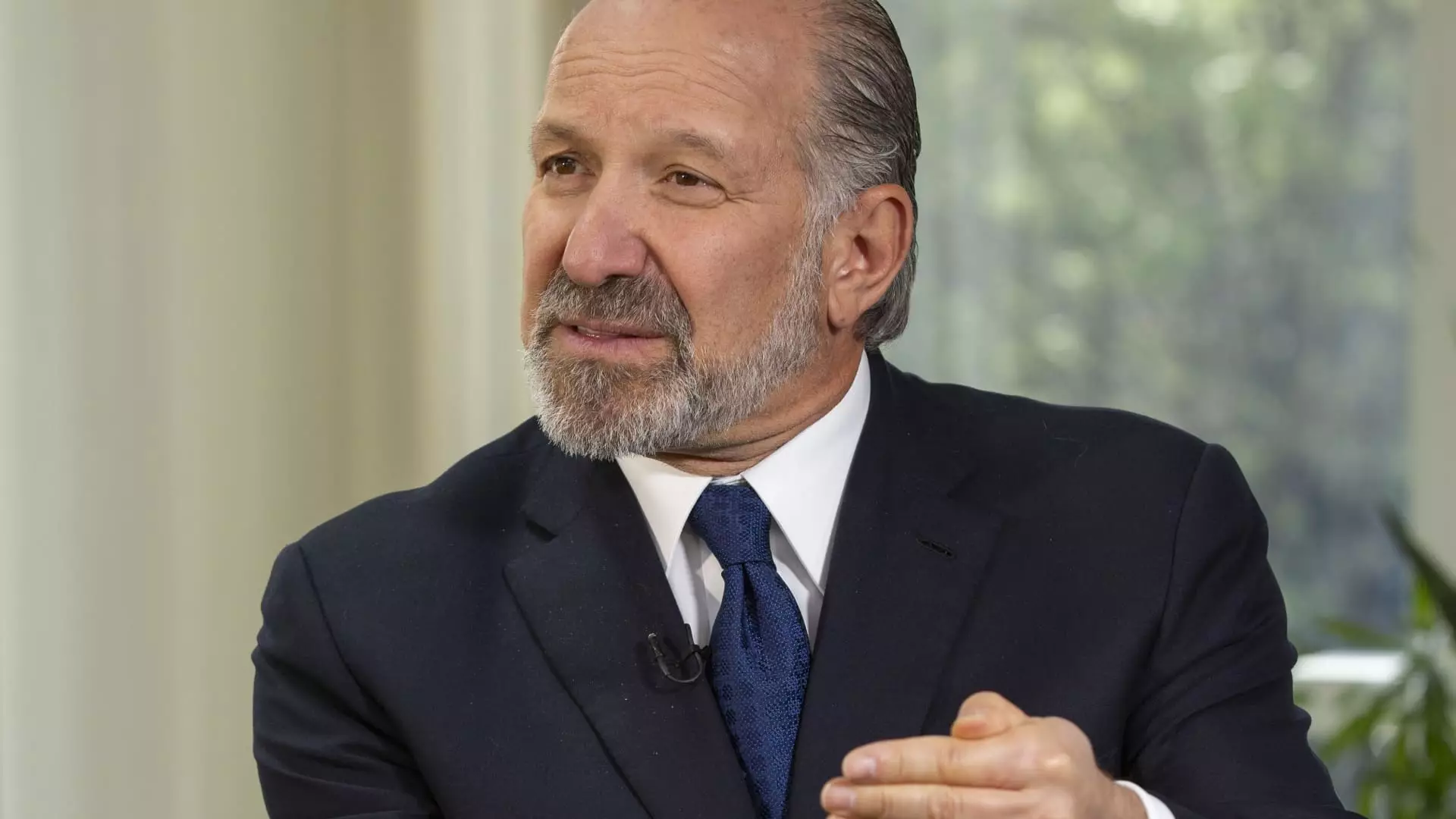In recent developments, the conversation around public investment in private corporations has taken a troubling turn, revealing a skewed perception of fairness and national interest. Commerce Secretary Howard Lutnick’s assertion that the U.S. government should receive an equity stake in Intel in exchange for funds from the CHIPS Act exposes a clear misconception that government spending must lead to shareholder-like control or profit-sharing. This rhetoric dangerously blurs the lines between fostering national technological sovereignty and advancing corporate greed. Public money, especially that allocated to vital infrastructure like semiconductor manufacturing, should serve the public good—not become a tool to artificially inflate corporate valuations or enrich executives with stakes in private enterprise.
Lutnick’s framing dismisses the fundamental purpose of government investments: to catalyze economic security, innovation, and broad-based growth. Instead, it promotes a transactional perspective wherein taxpayer dollars are leveraged as mere capital injections, with the expectation of future equity returns. This approach disregards the broader societal potential of these funds—creating jobs, strengthening supply chains, and ensuring national security—by reducing them to instruments of profit maximization even before the factories have produced a single chip. It’s a shortsighted attitude that risks transforming once purely public investments into opportunities for corporate consolidation, ultimately undermining democratic accountability and long-term national interests.
Privatization of Strategic Assets and the Threat to Public Welfare
The push for government equity stakes in companies like Intel reflects an alarming shift toward unbridled privatization of what should be strategic assets. The chips sector is vital to everything from consumer electronics to military defense; allowing private conglomerates to sit at the helm of such critical infrastructure, even with a nonvoting stake, raises serious questions about priorities. When the government acts more like an investor than a regulator or protector, the risk is that decisions about national priorities—like securing supply chains or funding essential R&D—become subordinate to shareholder value considerations.
The fact that Intel and its competitors have been largely unresponsive to the needs of the broader public while securing vast amounts of taxpayer money underscores this divergence. The delays and scaling-back of major projects like the Ohio fabrication plant exemplify how corporate interests often outpace public needs. Yet, with government stakes, these companies might feel emboldened to prioritize short-term profits over sustainable growth, technology leadership, or employment stability. The risk is a future where strategic industries are increasingly driven by the whims of private investors rather than transparent policymaking rooted in the public interest.
Disregarding the Broader Social Responsibility
Critics should be wary of any narrative that treats public investments as mere financial transactions—expecting returns in the form of equity or profits—without demanding corresponding social accountability. The supposed benefits touted by proponents, such as fostering cutting-edge manufacturing or reducing reliance on foreign suppliers, are often overshadowed by corporate agendas and geopolitical complexities. Intel’s decision to slow factory development—citing market conditions—demonstrates corporate priorities leaning toward shareholder expectations rather than securing reliable manufacturing capacity for national resilience.
Furthermore, importing the mentality that government officials should be ‘partners’ seeking equity stakes echoes a troubling corporate ethos that places shareholder returns above worker protections, environmental sustainability, or equitable regional development. When public funds are used to bolster private profits, democratic oversight diminishes, and the risk of cronyism, corruption, and inequality intensifies. It’s not merely about strategic investments; it’s about the foundational principles guiding whether public funds are used to serve society or to deepen the pockets of already-powerful corporations.
A Political Shift That Risks Eroding Democratic Control
The recent discourse blurs the essential distinction between government as a regulator versus a corporate stakeholder. While proponents argue that acquiring equity is a fair trade, this narrative overlooks the inherent risks of entrenching corporate influence within the decision-making processes that should be publicly accountable. If government becomes a minority or nonvoting shareholder, it grants private interests a foothold—sapping the influence of citizens and their representatives over critical industries.
This political shift towards leveraging public funds for private gain reflects a broader trend that threatens democratic integrity. When government officials advocate for corporate equity, they inadvertently signal that private interests are paramount to national priorities. Such a stance risks fostering a market environment where public policy is dictated by the needs of corporations rather than the common good. A smarter, more equitable approach would prioritize transparent, targeted investments that reinforce national resilience, safeguard public interests, and ensure that the fruits of technological advancement benefit all, not just corporate shareholders.
—


Leave a Reply